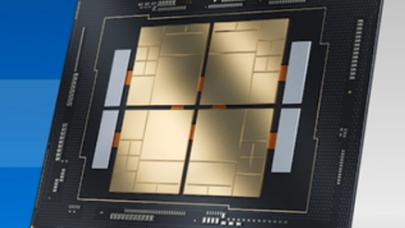
Intel Showcases ‘AI Everywhere’ Strategy in MLPerf Inferencing v3.1
September 18, 2023
Intel used the latest MLPerf Inference (version 3.1) results as a platform to reinforce its developing “AI Everywhere” vision, which rests upon 4th gen Xeon Read more…

MLPerf Releases Latest Inference Results and New Storage Benchmark
September 13, 2023
MLCommons this week issued the results of its latest MLPerf Inference (v3.1) benchmark exercise. Nvidia was again the top performing accelerator, but Intel (Xeo Read more…

Intel’s Habana Labs Takes on Prominent Role as Generative AI Surges
May 9, 2023
Intel acquired AI chipmaker Habana Labs just four years ago; now, the division is serving – per Habana COO Eitan Medina – as “effectively the center of ex Read more…

Intel’s Gaudi3 AI Chip Survives Axe, Successor May Combine with GPUs
February 1, 2023
Intel's paring projects and products amid financial struggles, but AI products are taking on a major role as the company tweaks its chip roadmap to account for Read more…

Intel Ships Sapphire Rapids – to Its Cloud
September 27, 2022
Intel has had trouble getting its chips in the hands of customers on time, but is providing the next best thing – to try out those chips in the cloud. Delayed chips such as Sapphire Rapids server processors and Habana Gaudi 2 AI chip will be available on a platform called the Intel Developer Cloud, which was announced at the Intel Innovation event being held in San Jose, California. Read more…

The Mainstreaming of MLPerf? Nvidia Dominates Training v2.0 but Challengers Are Rising
June 29, 2022
MLCommons’ latest MLPerf Training results (v2.0) issued today are broadly similar to v1.1 released last December. Nvidia still dominates, but less so (no gran Read more…

Intel’s Habana Labs Unveils Gaudi2, Greco AI Processors
May 10, 2022
At the hybrid Intel Vision event today, Intel’s Habana Labs team launched two major new products: Gaudi2, the second generation of the Gaudi deep learning training processor; and Greco, the successor to the Goya deep learning inference processor. Intel says that the processors offer significant speedups relative to their predecessors and the... Read more…

Voyager AI Supercomputer Gives Investigators New Deep Learning Experimental Platform
January 13, 2022
As human-caused climate change warms the planet, creating drier conditions across the Western U.S., wildfire intensity has grown. California’s wildfires over Read more…

- Click Here for More Headlines

Whitepaper
Transforming Industrial and Automotive Manufacturing
In this era, expansion in digital infrastructure capacity is inevitable. Parallel to this, climate change consciousness is also rising, making sustainability a mandatory part of the organization’s functioning. As computing workloads such as AI and HPC continue to surge, so does the energy consumption, posing environmental woes. IT departments within organizations have a crucial role in combating this challenge. They can significantly drive sustainable practices by influencing newer technologies and process adoption that aid in mitigating the effects of climate change.
While buying more sustainable IT solutions is an option, partnering with IT solutions providers, such and Lenovo and Intel, who are committed to sustainability and aiding customers in executing sustainability strategies is likely to be more impactful.
Learn how Lenovo and Intel, through their partnership, are strongly positioned to address this need with their innovations driving energy efficiency and environmental stewardship.
Download Now
Sponsored by Lenovo
Whitepaper
How Direct Liquid Cooling Improves Data Center Energy Efficiency
Data centers are experiencing increasing power consumption, space constraints and cooling demands due to the unprecedented computing power required by today’s chips and servers. HVAC cooling systems consume approximately 40% of a data center’s electricity. These systems traditionally use air conditioning, air handling and fans to cool the data center facility and IT equipment, ultimately resulting in high energy consumption and high carbon emissions. Data centers are moving to direct liquid cooled (DLC) systems to improve cooling efficiency thus lowering their PUE, operating expenses (OPEX) and carbon footprint.
This paper describes how CoolIT Systems (CoolIT) meets the need for improved energy efficiency in data centers and includes case studies that show how CoolIT’s DLC solutions improve energy efficiency, increase rack density, lower OPEX, and enable sustainability programs. CoolIT is the global market and innovation leader in scalable DLC solutions for the world’s most demanding computing environments. CoolIT’s end-to-end solutions meet the rising demand in cooling and the rising demand for energy efficiency.
Download Now
Sponsored by CoolIT
Advanced Scale Career Development & Workforce Enhancement Center
Featured Advanced Scale Jobs:
HPCwire Resource Library
HPCwire Product Showcase
© 2024 HPCwire. All Rights Reserved. A Tabor Communications Publication
HPCwire is a registered trademark of Tabor Communications, Inc. Use of this site is governed by our Terms of Use and Privacy Policy.
Reproduction in whole or in part in any form or medium without express written permission of Tabor Communications, Inc. is prohibited.
























